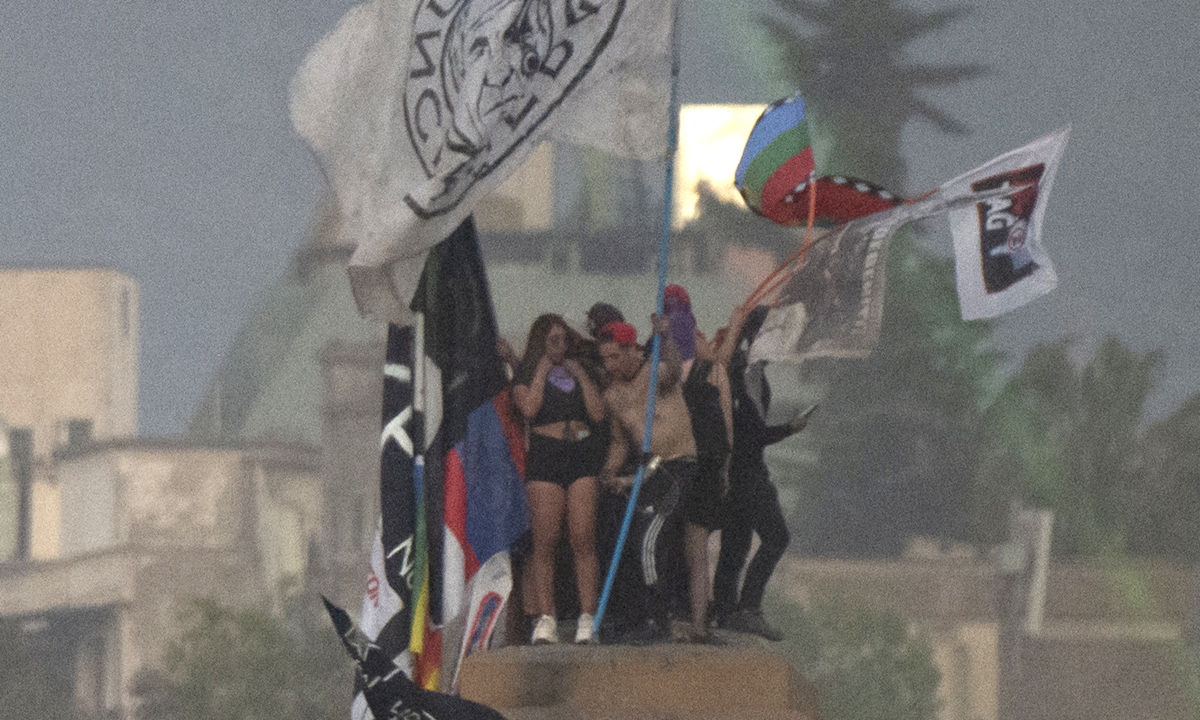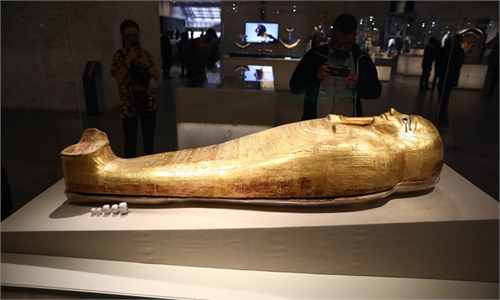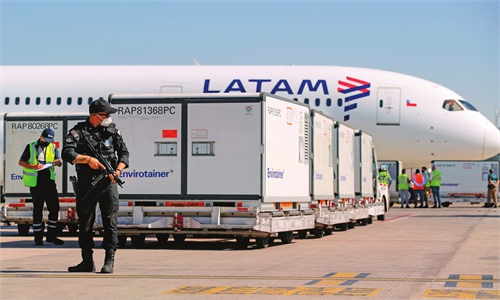
People demonstrate during a protest to mark the second anniversary of months of civil uprising against social inequality in Santiago, Chile on Monday. Photo: AFP
Two people died, 56 were injured and 450 arrested as clashes broke out in Chile during mass street protests to mark the second anniversary of a social uprising, police said on Tuesday.Monday's demonstrations throughout the country were to mark the October 2019 protests that sparked political change in the country and led to the start of a process to re-write the Augusto Pinochet-era constitution.
A man was killed by gunfire during an attempted robbery of a shop in Santiago on Monday while a woman died after falling from a motorcycle.
Most disturbances on Monday took place in Santiago where vandals set up street barricades, attacked a police station, and looted shops and public buildings, a police report said.
Authorities detained 450 people throughout the country, 279 of those in Santiago, while 11 civilians and 45 police officers were injured.
"The numbers are very high," said Marcelo Araya, director of order and security at Chile's Carabineros national police force.
Thousands of demonstrators took to the streets in 50 locations around the country to mark the anniversary of the street protests led by students and sparked by a hike in metro fares.
The unrest that followed left 34 dead and 460 people with eye injuries, including some that lost their sight, from pellets and tear gas fired by police.
Chilean President Sebastian Pinera's government came under fire over the response from security forces that included some rights violations.
The protests continued for four months up to the outbreak of the coronavirus pandemic.
Juan Francisco Galli, the interior undersecretary, blamed Monday's violence on opposition candidates for November's presidential election, leftist Gabriel Boric and centrist Yasna Provoste, for proposing and supporting pardons for detainees that "looted, destroyed everything and threw Molotov cocktails" during the 2019 protests.
"The people responsible for the violence are those that established in our country a sense of impunity, that there are no consequences for violence," said Galli.
AFP



